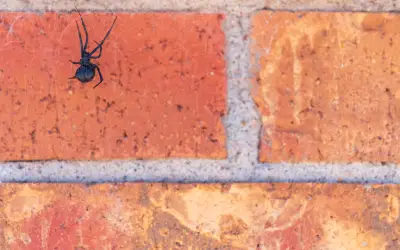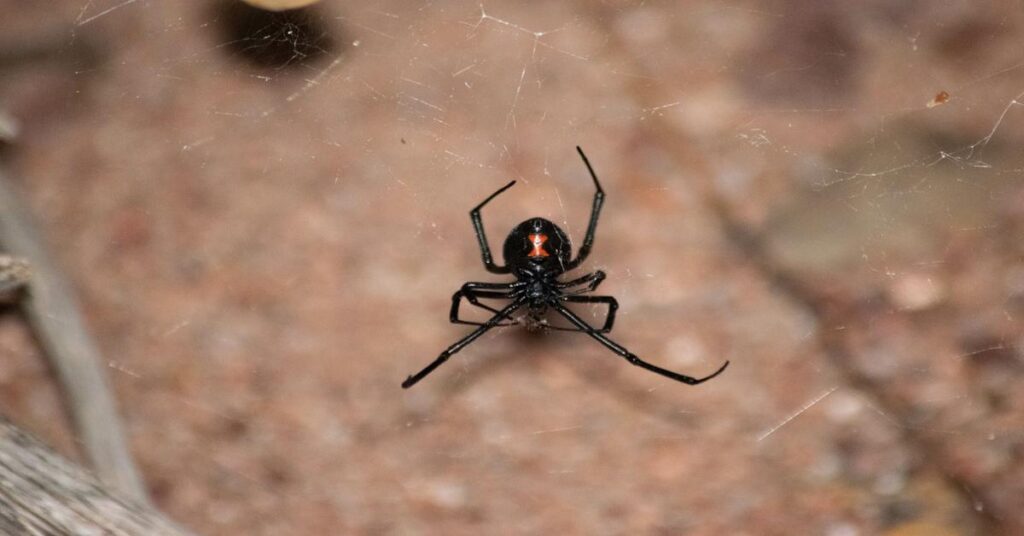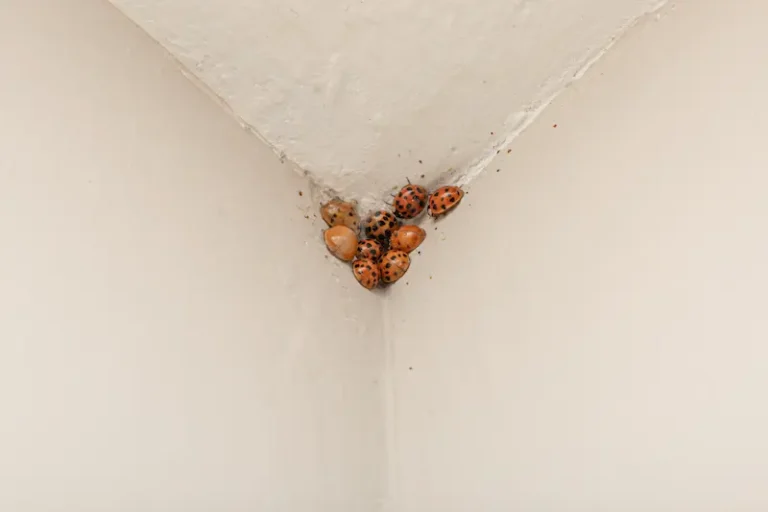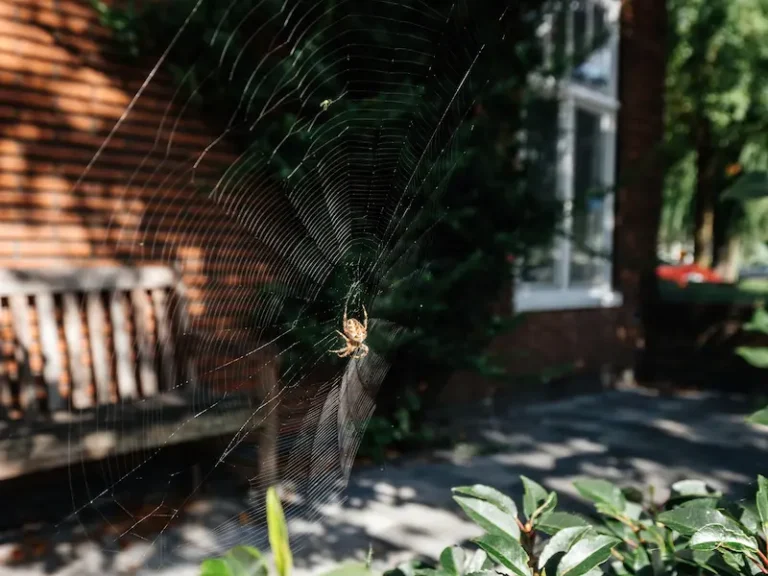You’ve probably heard of the black widow spider and its potent venom that can cause death. Some even say that a black widow’s venom is fifteen times stronger than a rattlesnake’s. But you might have also heard that the last confirmed human death occurring in the United States as a result of a black widow bite was in 1983 – more than four decades ago. So, which is true? Are black widows actually dangerous, or is it an urban legend? Just how dangerous are black widow spiders, anyway?
The truth is that black widow spiders are potentially very dangerous, but in practical terms, they’re not as dangerous as you might think.
For a question like this, it’s important to separate the danger of the venom and the danger of the spider itself to get a full picture of the risks.
How Dangerous Is a Black Widow Bite?
Let’s start here. Black widow bites are dangerous – there’s no denying that. If you get bitten by one, the spider will inject you with its potent venom, and it will hurt. Yes, it’s a very painful bite, and there’s the potential for symptoms to worsen over time.
If you or a loved one gets bitten by a black widow spider, here’s what to expect:
- Within about 30 to 60 minutes, the pain will increase in intensity and may become quite severe.
- The area around the bite may become red and swollen with visible fang marks where the spider punctured the skin.
- Within a few hours, you may begin to experience a condition specific to bites from black widows and related spiders called latrodectism.
- This condition can trigger painful muscle cramps and spasms that start near the site of the bite and radiate further out. The abdominal muscles may feel tightened or rigid.
- You may begin to feel severe pain in other parts of the body away from the site of the bite.
- Sweating, nausea, and even vomiting are common. As are headaches.
- If you begin to experience any of the following severe symptoms, contact a medical professional immediately: difficulty breathing, seizures, shock, or loss of consciousness
- Severe pain and cramping symptoms should subside in 24-72 hours, but minor symptoms may still be felt for days or even weeks afterward.
Are All Black Widow Bites Dangerous?
No, and this is where it gets tricky. Different people react to black widow bites differently. Additionally, black widows control how much venom is injected with their bites, so some bites may pack a more painful punch than others.
That’s why it’s always important to closely monitor symptoms after a bite. Some people may feel few symptoms at all, while others might feel them for days afterward. If you find yourself in extreme pain or begin experiencing severe nausea, dizziness, or fainting, contact a doctor or trusted medical professional.
Is a Black Widow in Your House Dangerous?
Once again, it’s important to separate the risk level between a black widow bite with venom versus a black widow spider.
Black widow bites and venom are dangerous. Black widow spiders are less dangerous.
Why is that? Mostly, because black widow spiders are highly unlikely to bite you. If you find a black widow spider in your house, garage, or attic, you’re most likely to find it on its web waiting for some unlucky prey to stumble on and get stuck. You’re highly unlikely to find a black widow roaming in an area where people or pets regularly travel.
Five Reasons Black Widows Are Less Dangerous Than You Might Realize
- Shy and reclusive nature: Black widows are timid and non-aggressive creatures. They are not inclined to seek out and bite humans. They prefer dark, undisturbed environments like woodpiles, sheds, and garages, and will generally only bite when they feel threatened and trapped, such as when a hand reaches into their web or they are accidentally pressed against skin.
- Bites are a last resort: When disturbed, a black widow’s first instinct is to flee or play dead. Biting is a defensive measure used only when they perceive a direct and immediate threat to their life. Many bites occur accidentally, for instance, when someone puts on a piece of clothing that a spider has crawled into.
- Effective medical treatment: For those who do experience a severe reaction to a black widow bite, there is an effective antivenom available. This is why it’s important to call a doctor or go to the emergency room ASAP if you notice severe symptoms.
- Dry bites happen sometimes: Not every bite from a black widow results in envenomation. In some instances, the spider may deliver a “dry bite” where no venom is injected. These bites will still cause localized pain and redness, but will not lead to the more severe systemic symptoms.
- Only females bite: It is important to note that only the female black widow has fangs long enough and venom potent enough to be a threat to humans. Male black widows are smaller, and their bites are not considered medically significant.

How Do Black Widow Bites Happen?
By avoiding black widow webs and spaces known to have them, you can reduce the likelihood of getting bitten by one significantly. If you startle one, it is more likely to run away than it is to bite you.
But you can’t reduce the bite risk to zero. Black widow bites still do happen, mostly for these reasons:
- Disturbing their web: Most bites occur when someone unknowingly puts a hand or foot into a black widow’s web. They build their webs in dark, quiet places like woodpiles, sheds, garages, and under furniture.
- Putting on clothes or shoes: A spider might be hiding in clothing or a shoe, and bite when it’s pressed against the skin.
- Reaching into dark areas: People often get bitten while gardening, cleaning out storage areas, or reaching into mailboxes where a spider has made its home.
- Pressing against the spider: If a black widow is on a surface and you accidentally lean or press on it, it will bite to defend itself.
How Fast Can a Black Widow Spider Kill You?
According to verified medical records, the last black widow fatality in the United States occurred in 1983, so the risk of death is extremely low. It’s also much more likely in small children, the elderly, or people with compromised health.
Hypothetically, if left untreated, it would likely take about one to three days for a black widow bite to kill a person. In the vast majority of cases, this should be more than enough time to get attention from a medical professional to stop the progression of symptoms.
Are Female Black Widow Spiders More Dangerous Than Males?
Yes. Female black widow spiders are significantly more dangerous than males.
Female black widows are bigger, with longer fangs that can pierce human skin. Bites from males are not medically significant.
What Are Some Spiders That Get Easily Mistaken for Black Widows?
Black widows – especially female ones with their glossy appearance and distinctive red hourglass marking – are usually easy to spot, but they can get mistaken for other, less dangerous spiders.
- False black widow (Steatoda grossa): Lacks the red hourglass. Its body is usually brown or purplish, not shiny, and jet black.
- House spiders and funnel weavers: They’re hairy and brown with patterns. Their abdomen is elongated, not a big, shiny black sphere.
- Jumping spiders: They are fuzzy, have stout bodies, and move in quick jumps. Any red markings are on their back, not underneath.
- Orbweavers: They build classic, circular-style webs and have complex patterns on their backs, never an hourglass.
Black Widow Bite Prevention Tips
Black widows are a very common type of spider, which can make prevention a challenge. These tips are aimed at preventing them from taking up residence in your house (to the extent that is possible) but also preventing bites (in case they do take up residence):
- Properly store shoes and shake footwear before sliding your feet in.
- Reduce clutter in storage areas and other secluded places.
- Be cautious when going into dark, warm, and secluded locations within or around your home. These spiders love crawl spaces, the underside of decks, and piles of brush.
- Be cautious when turning anything over in your yard. Consider wearing gloves if you’ll be working in the yard.
- Inspect closets near doors.
- Pull covers back before getting into bed.
- Ensure your doors are properly sealed. Check around the house for cracks and gaps that spiders can fit through
Should You Kill a Black Widow Spider If You See One in Your House?
It all comes down to your preference. If you find them in your house and you’re worried about the risks of getting bitten, by all means, go ahead and kill them. Especially if you have pets or kids you think may encounter a black widow, it’s better to be safe than sorry.
If you’re the type of person who doesn’t like to kill spiders, you can also leave them be. As long as you stay out of their area, the risk of getting bitten and suffering a painful bite and other symptoms is quite low. It’s just not zero.
Call Us for Black Widow Spider Control
Worried about black widows on your property? It’s understandable. While the risk of having them is low, the risks of a painful and potentially dangerous bite are real.
For complete peace of mind, trust the local experts. As the top choice for spider control in Indiana, Illinois and Kentucky, we have the experience to safely and effectively remove black widows from your property and help prevent their return.
Don’t wait for a painful surprise. Protect your home and family – call us today to schedule your inspection and get a free, no-obligation quote!
Back to Spider Control – Removal – Exterminators


